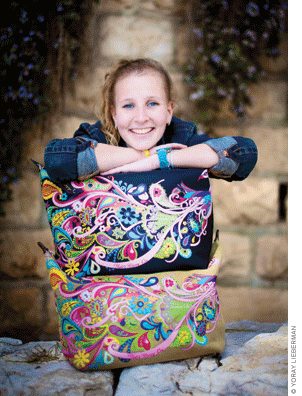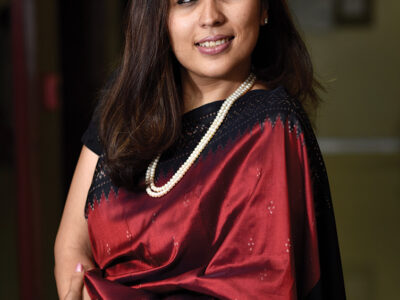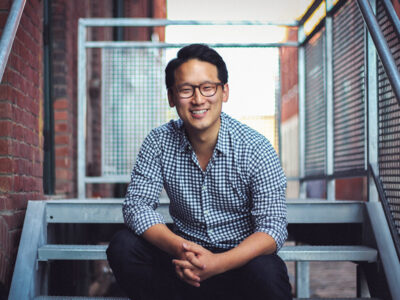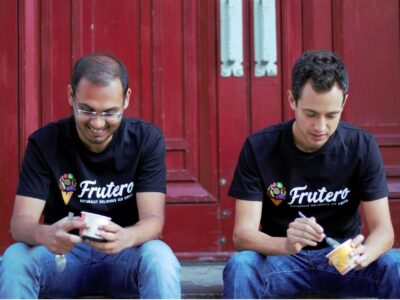
“Isn’t that Yali Derman?” the little girl asked. For the shy fourth-grader on the 18th floor of Chicago’s Ann and Robert H. Lurie Children’s Hospital, meeting the student nurse assistant in cobalt scrubs was better than meeting a movie star.
“Yali Derman is a celebrity here in Chicago,” explains the girl’s mom.
Not just in Chicago. The vivacious Penn senior is the winner of the 2012 Top 10 College Women competition sponsored by Glamour magazine, selected from among 1,400 nominees for “leadership experience, excellent grades, and inspiring goals.” When Derman spent her junior year in the Penn-Hebrew University joint nursing program at Hadassah Hospital, national Israeli media featured her inspirational story.
But for the little girl on the 18th floor, there’s a more personal reason that the blond, blue-eyed superstar is her role model: When Yali Derman was in fourth grade, she too was a cancer patient in this hospital, fighting a recurrence of the dread disease.
Born on the Jewish holiday of Yom Kippur, Derman was four when she was first diagnosed with leukemia. Other parents might not have noticed the subtle symptoms, which amount to a hard-to-quantify decrease in vibrancy and vitality. But both of Derman’s parents—themselves children of Holocaust survivors—are physicians. Derman survived a debilitating course of chemotherapy and started kindergarten on time. Then, on a spring picnic in third grade, she began to see double.
The cancer was back. This time it was present in her brain.
A relatively new and controversial procedure was recommended: bone marrow transplantation. Derman would need a donor. Her two older brothers were tested as potential matches. Remarkably, her brother Ben—four years her senior—turned out to be a near-exact match, like a twin. Despite the risks, her parents decided that transplantation offered her the best chance.
Bone marrow transplantation causes some of the same side-effects as chemotherapy and generates a fierce battle between the grafted bone marrow and the host’s. Derman was very sick and the lush golden curls that framed her face fell away. Says Derman, “When you are 11 years old, losing your hair is very hard. Life is about image, and you care what you look like. My curls were part of who I was.”
Offered an array of colored bandanas to hide her bald head, Derman rebelled. “The bandana became a symbol of what I didn’t want to wear,” she says. “I got to the point where I accepted the hair loss, but I refused to walk around with the typical sign announcing that I had cancer. I was determined to transform those bandanas to something positive.”
She had learned to sew from her father, Gordon Derman, a plastic surgeon who is also their family’s handyman. Sewing needles were prohibited on the cancer ward because of possible pricking and infection. So, using an oversized crafts needle, Derman sewed the bandanas together into tote bags for herself and for her nurses. At first the bags were simple, but soon she was adding pockets and decorations.
The Make-A-Wish Foundation, which grants wishes to children with life-threatening diseases, had approached Derman’s family when she was hospitalized the first time. Her parents had politely declined the help.
“We have enough money to take our daughter to Disneyland,” her mother explains. “The donations should be used for needier families than ours.”
But now, recovering from her second encounter with cancer, Derman had a wish. She wanted to produce handbags with the legendary “Kate Spade”—Kate Brosnahan, a former fashion editor at Mademoiselle who had built an empire in fashion bags and other accessories. Make-A-Wish forged the connection. The resulting limited-edition Kate Spade handbag—black with paisleys—brought in $50,000, which was donated to Make-A-Wish.
“I loved the idea of giving money and not receiving from them,” says Derman. “I felt so lucky that I had a great charity to work for, and got to design with Kate’s team under her label. Kate guided me and gave me the voice and the leaping-off point to start my own company.”
When she was 16, that’s exactly what she did. Derman named her company Yali’s Carry On—reflecting both the light, oversized totes that are great for taking on airplanes and her message of putting disease behind her.
“I started the company hoping to raise $1,000 with my first bag. I came out $12,000 ahead,” she says. This time, the profits were donated to KIDDS, a charity associated with the Children’s Memorial Hospital—now renamed Lurie—where she received her life-saving treatment. It’s also where she met the nurses whose compassion, expertise, and loving care inspired her to become a nurse.
Despite the educational setbacks involved with fighting cancer, Derman set her sights on Penn’s School of Nursing.
“In addition to Penn’s overall reputation for excellence, I knew that the nursing school was wonderful, and offered the possibility of taking graduate classes during the undergraduate year,” she explains. “I guessed that I’d want to go on to graduate school and become a nurse practitioner for acute pediatric diseases. And there was another benefit: I’d heard about the joint program with Israel and knew I’d want to do that, too.”
Her Penn experience has been “even beyond expectations.” In addition to classes and student nursing, Derman has undertaken an independent study project with nursing professor Janet Deatrick, whose research focuses on how families cope with childhood illness and how young cancer survivors transition to normal life. She has created tote-making workshops for other children, and has written a handbook on the subject.
“I know from my own experience that children often find it easier to use the visual arts to express and project their feelings about living with illness,” she says.
To expand her vistas as a nurse and improve her Hebrew, Derman took part in the Penn Nurses Abroad Program, using the opportunity to work with Jewish and Arab children.
“I was proud to be working at Hadassah Hospital, built by the American Jewish women’s organization that all the women in my family belong to,” she says.
This summer, she returned to Lurie Children’s Hospital. Yali’s Carry On profits have yielded $150,000, which will pay for a new children’s playroom in the pediatric hematology and oncology department.
Her totes, with their multihued peacocks, are sold online (yaliscarryon.com), at Saks, and at museum and hospital gift shops. The bags are particularly popular among the families of patients and staff at Lurie Hospital, where Derman spent her summer vacation working alongside the nurses who once checked her vital signs.
“Whenever I see someone with my bag, I can’t resist coming up and saying, ‘Love your bag,’” Derman smiles.
“Often they tell me that the bag was designed by a girl who had overcome cancer. Then I say, ‘That’s me!’”
—Barbara Sofer




